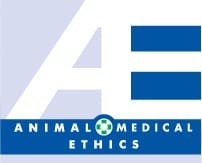 GLOBAL registration of the Australian pain relief and wound treatment product Tri-Solfen will be fast-tracked after the signing of an A$18 million share capital and licensing deal with English company Dechra Pharmaceuticals PLC.
GLOBAL registration of the Australian pain relief and wound treatment product Tri-Solfen will be fast-tracked after the signing of an A$18 million share capital and licensing deal with English company Dechra Pharmaceuticals PLC.
The board of the Northwich-based FTSE 250 company has announced it has entered a long term intellectual property licensing agreement with Animal Ethics Pty Ltd, an Australia-based company focused on developing ethical animal pain relief products.
The agreement gives Dechra the rights to sell and market Animal Ethics’ product Tri-Solfen for all animal species in all international markets, excluding Australia and New Zealand. Under the terms of the agreement Dechra has agreed to make milestone payments on signing, on the first and second anniversaries of the agreement and on the first two major species approvals in markets with significant potential. A royalty will also be paid on all net sales.
Dechra has also acquired 33 percent of the issued share capital of Medical Ethics Pty Ltd, the parent company of Animal Ethics and its only principal subsidiary, for A$18 million or £11 million. The A$18m will be split as A$9m of new equity to provide funding to Animal Ethics and the balance to acquire existing shares from the current shareholders.
Under the terms of the agreement, Dechra will have a seat on the Medical Ethics’ Board and minority shareholder rights.
Global Tri-Solfen sale potential $350 million-plus
Animal Ethics managing director Allan Giffard said the Dechra agreement will enable the registration programs for Tri-Solfen to be fast-tracked in Europe, the United States, South America and South Africa over the next 2- years.
“This is exciting for our company and exciting for animal welfare.”
The global market potential for Tri-Solfen is estimated to be in excess of A$350 million per year for the treatment of routine on farm procedures in calves, lambs and piglets.
“Dechra is a leading global pharmaceutical company that has also recognised the social impact this is creating, and through their investment will assist Animal Ethics in providing a practical and cost efficient animal welfare solution for livestock industries globally,” Mr Giffard said.
“This new partnership with Dechra is a major breakthrough for our company.
“The other exciting thing is that it is a great news story for Australian livestock industries.”
Mr Giffard said Dechra had recognised that Australia does lead the way in the sector for sheep and now cattle, and see the opportunity for Tri-Solfen to go global.
Tri-Solfen has proven to be highly successful in Australia, and is registered as an over-the-counter product for the reduction of pain in lambs and calves undergoing routine surgical procedures, such as mulesing, castration, tail-docking and disbudding. To date the leading animal welfare technology has treated over 70 million animals.
Australian Wool Innovation breech surgery statistics indicate that more than nine million of the 14.3 million lamb’s mulesed in 2015 were treated with pain relief. Tri-Solfen is registered for sheep and marketed by global animal health company Bayer in Australia, with current annualised sales for the mulesing application estimated at A$4 million per annum.
Mr Giffard said world-wide consumers are now demanding best animal welfare practices in food and fibre production.
Dechra’s chief executive officer, Ian Page said after talking with Animal Ethics for a number of years, he was delighted to have secured the long term relationship.
“Once approved for major markets, Tri-Solfen significantly strengthens our food animal products portfolio, will further our geographical expansion strategy and will enhance Dechra’s reputation of providing clinically necessary, high quality, ethical veterinary pharmaceuticals.”
What’s next for Tri-Solfen with Dechra?
Dechra said Tri-Solfen has 35 patents granted across the majority of the world’s major animal health markets. Its primary use and area for initial development and regulatory focus is in sheep, pigs and cattle; however, other opportunities have been identified in horses and companion animals. The development process is underway to register the product in global markets, with initial focus being for pigs in Europe and pigs and cattle in the US; the first registrations are targeted for approval in 2020, Dechra said. The global market potential is conservatively estimated to be A$350 million; however, with the increasing focus on the ethical treatment of farm animals, this target could be exceeded once multi-species approval is achieved in the major markets. The reduced infection risk, improved wound healing and lower level of animal stress that result from Tri-Solfen use, combined with the low cost per dose, drives a strong economic case for market adoption, the company said.
Dechra said animal welfare is becoming a major commercial and political issue for livestock industries. Prior to the introduction of Tri-Solfen, the Australian wool industry was facing international wool boycotts and the EU and US pig and cattle industries are now facing similar conflicts from welfare advocacy groups, consumer groups and retailers, with the consequential legislative pressure to ban procedures without the use of anaesthetic.
The European Commission is currently undertaking a review with a view to creating an industry welfare quality standard for utilisation on product labelling, Dechra said, and Tri-Solfen will address many animal welfare concerns.

Keep the band-aids rolling out.